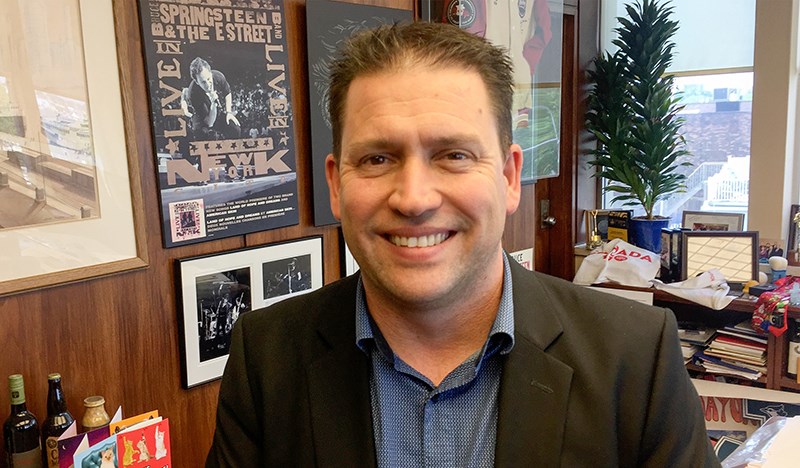Jake Romphf
An Australian city looking to set up a bio-fuels industry sent a delegation to Sarnia recently to see how it’s done.
Matt Burnett, the mayor of Gladstone, Queensland, said Sarnia and his city have much in common, including heavy industry, a location on the water, and similar sized populations.
“I want to see how the research is going and delivering jobs and changing the economy here in Sarnia,” he said during a visit to Mayor Mike Bradley’s office.
“We can take that learning back.”
Gladstone has liquid natural gas plants, aluminum and plenty of coal, but the city wants to diversify into plant-based fuels, he said.
“We don’t have a coal problem. My deputy mayor says he loves coal, he baths in coal, he drinks rum and coal,” Burnett said.
But it’s time to consider alternatives, he added.
“So what’s next for us?”
Burnett and Mario Pennisi, CEO of the Life Sciences Queensland, took a driving tour of local plants and visited the Western Research Park on Modeland Road, an incubator for new start-ups.
Bio-based companies locally are using leftover corn stalks, wheat straw, industrial emissions and even restaurant fats as feedstocks.
In Australia, sugar cane waste is readily available, as well as macadamia nutshells.
Sarnia-Lambton turned to the bio-chemical sector after its traditional petrochemical sector began to shrink in the 1990s.
Pennisi said his community hopes to establish a cluster much faster in Australia. Technology is more advanced today than it was and the warm climate of Queensland allows for a more crop cycles and higher yields.
He said there are valuable lessons to learn from Sarnia’s experience over the past two decades.
“There’s maybe some stuff you’d do differently if you had the time again, and that’s the opportunity for us,” Pennisi said.
“There’s no point making the same mistakes somebody else has made. We can work together.”
The visit was organized by Murray McLaughlin, an advisor to Bioindustrial Innovation Canada. The Sarnia-based not-for-profit is helping attract new businesses to the local cluster of cleaner, greener companies.
